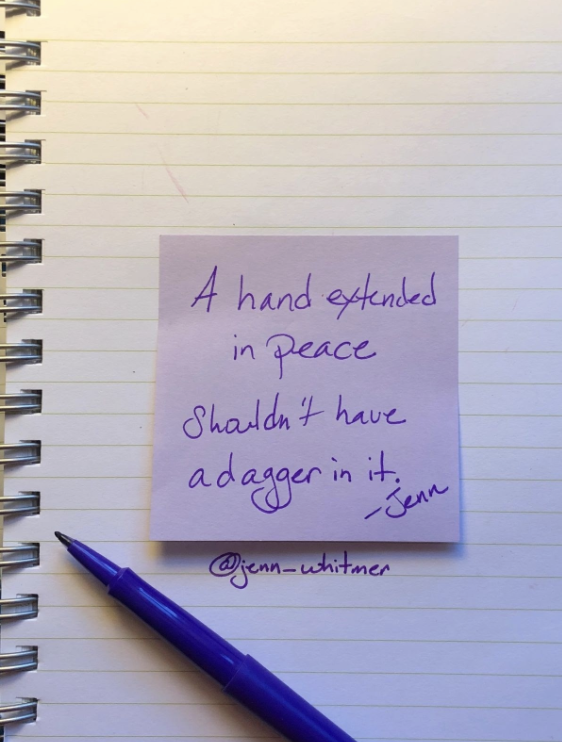I have seen some frankly stunning non-apologies this week.
Words from public figures and people in positions of leadership whose words were characterized by a devastating lack of respect.
The basic sentiment of a non-apology from this week:
IF what I said when you were mean to me was mean back, well you were really mean to me. I shoulda probably done something different. My bad.
And another:
I wasn’t really talking about you, it was about someone else. Sorry if you were offended.
And one from playgrounds and offices around the world:
I was just kidding. I didn’t mean it.
We’ve all felt the sting when someone offers this type of statement. But how often have we given this non-apology, causing further damage?
Apologies are relational first aid. We need something different than, “Should have done that differently,” to begin the healing process. Regardless of your Enneagram type, genuine apologies are a skill to learn.
Apologies are the truth-telling beginning of systemic change. They are the first step toward reconciliation and justice.
Especially for those of us who are leaders or parents, modeling genuine apologies (or giving bad ones) impacts the trust we have with our teams and families.
There are ten tools to include in your apology first aid kit. Do you know all the pieces to stock in your kit?
Download my “Apology First Aid Kit” for your free tip sheet.
How have you felt when you’ve been on the receiving end of a non-apology?

COMMENTs:
0